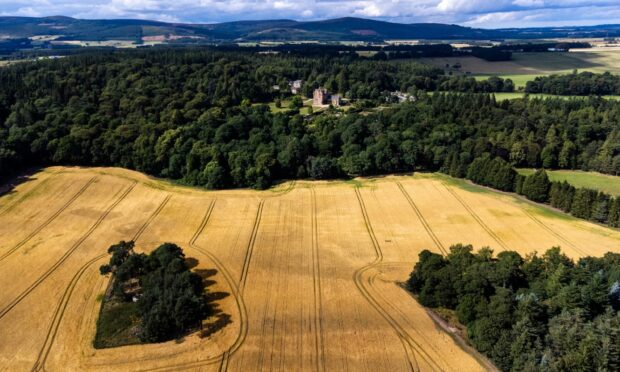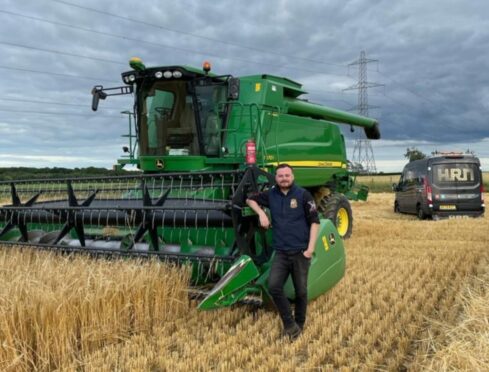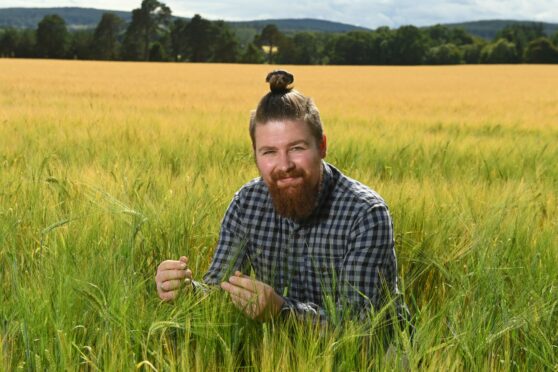There’s no shortage of whisky distilleries popping up around Scotland, but Burnobennie at Banchory is focusing on sustainability, while pushing the boundaries with innovative distilling processes.
According to distillery owner, Mike Bain, the whisky is all about the barley which is currently bought from the Barclay family at Harestone, less than two miles away.
Cameron Knee, Harestone’s farm manager, explained that the business grows about 600 acres of spring barley, mostly on contract to drinks giant Diageo, but they were delighted to be approached by the local distillery to provide 200 tonnes of Laureate.
He said: “It is a circular deal which sees us growing the barley and organising shipment to the maltsters in Caithness, but we get the pot ale and draff returned free of charge.
“Pot ale doesn’t have a huge nutritional value as a fertiliser but the cows seem to milk very well on the draff.”
The price is agreed at harvest and Mr Bain said that as quality, not quantity is crucial to the distillery, a significant premium is paid.
He is keen to promote regenerative farming, so next spring the plan is to direct drill his spring barley, which may impact on yield.
“However, we are happy to go along with what the distillery wants, as long as it is commercially viable.” he added.
Mr Bain, a native of Caithness, also has an agreement with Thrumster Estate and David Campbell of Thrumster Mains to grow organic barley.
So far 60 acres of Laureate are in the ground.
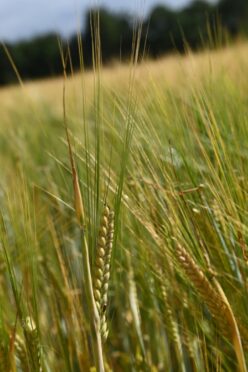
He added: “We have sown one acre of the ancient heritage variety, Bere, and the aim is to build this up to 150 acres of regeneratively and biodynamically grown barley, which, combined with our amplified method of production, will give our whisky a distinctive flavour.”
Although there is an element of haulage involved in shipping the barley to the maltsters in Inverness and to the distillery in Banchory, Liam Pennycook, the distillery director, pointed out that this is offset by production efficiencies.
All the distillery equipment is made and designed in the UK, keeping the manufacturing footprint to a minimum. The bespoke mash tun at the heart of the distillery reduces water and heating bills to at least 50% of the industry standard.
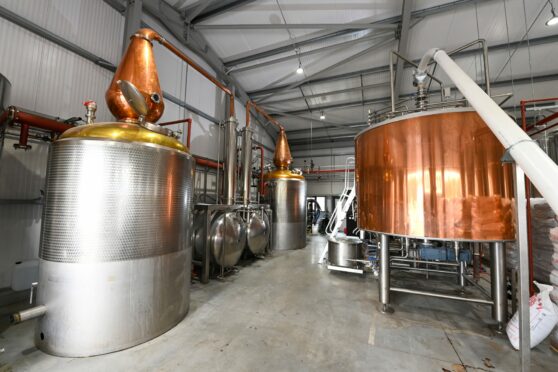
He added: “We amplify our beer wash making 5000 litres at 14% versus 10,000 litres at 7% which saves at least 50% water, heat and power while also ensuring maximum flavour in the spirit.”
In the industry some distillers believe up to 85% of the flavour comes from the cask.
However, Mike said: “We are looking for a closer partnership between early flavour using darker roasts of malt, particularly chocolate malt, married with the slow maturation in the cask. Barley is our number one ingredient and the most important.
“So far, at blind tastings, our young whisky has been very well received, and held its own among more established brands. Of course it will be several years before we are ready to bottle the first Burnobennie.”
Bottles are made from recycled glass and they also print directly on to the bottles to reduce any waste for labels.
There is no plastic in the packaging and no secondary packaging such as boxes, and Burnobennie has just won the 2022 Opportunity North East food award for sustainability.
To add to the fledgling company’s green credentials, it has helped to plant 50,000 native trees in a local initiative with the River Dee Trust that aims to plant a million trees along the Dee’s tributaries
